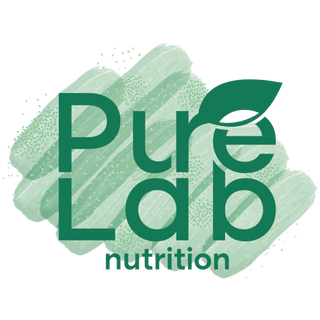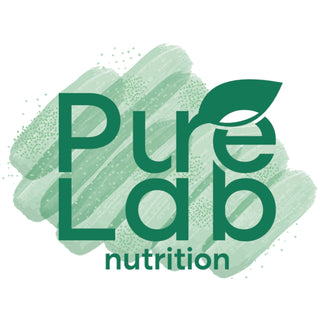Known as THE vitamin for energy and fitness, the benefits of vitamin C have been appreciated for a long time. Existing in different forms, the best vitamin C will contribute to the proper functioning of the human body and its defense, particularly against viruses and bacteria.
Be careful though: regular consumption is important to avoid vitamin C deficiency, because humans can neither produce it naturally nor store it. ANSES (National Agency for Food, Environmental and Occupational Health Safety) recommends a daily intake of 110 mg for men and women aged 18 and over.
But then, how do you select the best vitamin C?
Overview of the criteria to take into account.
Quick reminder: what is vitamin C?
Vitamin C is probably the most famous of vitamins. It plays a major role by acting as an antioxidant. It strengthens the immune system and prevents certain dysfunctions of the body.
So, vitamin C is our ally. It allows us to fight against stress, but also to better resist external aggressions (pollution, free radicals, sun, tobacco, etc.). Taking vitamin C also promotes the production of collagen, a protein that fights against cellular aging.
It should also be noted that it facilitates the absorption of iron and helps reduce fatigue.
If you want to find out more about it, we have a complete guide on vitamin C.
Choosing the best vitamin C: focus on some selection criteria
Vitamin C, also called ascorbic acid, is found in two different forms: natural and synthetic. Depending on your use, your lifestyle, your activities, you will choose one or the other. To determine the best form of vitamin C, the one that will be best suited to your needs, there are a few selection criteria to know ⤵️
Natural or synthetic vitamin C?
So there are 2 types of vitamin C, which are ultimately quite simple.
One, natural vitamin C, comes from our diet. Indeed, a balanced and varied diet of fruits and vegetables provides most of the daily intake of vitamin C. It is the best natural vitamin C.
The other, synthesized vitamin C, is born from a chemical reaction, obtained in the laboratory. Synthetic vitamin C is called artificial.
But then, what is the best form of vitamin C? It all depends on your food consumption and whether or not it induces a vitamin C deficiency.
Vitamin C consumption: what is the recommended dosage?
To avoid any lack of vitamin C, as we mentioned above, the minimum daily intake for an adult is around 110 mg, or nearly 500 g of fruits and vegetables per day. All the same! 🍊
However, in some specific cases it is advisable to increase this nutritional intake. For example:
- pregnant women: up to 120 mg/day;
- breastfeeding women: 130 to 170 mg;
- elderly people: 120 to 130 mg;
- athletes: up to 1000 mg.
As we can see, athletes really need vitamin C! We talk about vitamin C and sport in this article, if you want to know more.
Vitamin C: is there a risk of overdose?
Good news: vitamin C is water-soluble, so the excess is eliminated with urine. So, there is little risk of overdose! However, in the event of excessive consumption and/or intestinal fragility, some unpleasant side effects may be observed, such as accelerated transit.
If necessary, reduce your consumption and space out your intake of ascorbic acid.
What is the best vitamin C?
Now that you know more about the functions and characteristics of this wonderful nutrient, the key question remains: how to find the best form of vitamin C!
To answer this question, you will first need to determine whether you prefer to consume 100% natural vitamin C or not.
Natural Vitamin C
The best natural vitamin C is found in our food. Concentrations vary depending on the type of fruit or vegetable. Oranges, for example, are known to be rich in vitamin C, but they are not the only ones!
Acerola
This shrub is native to Mexico, South America and Central America. These fruits are rich in nutrients (vitamins, minerals and plant fibers), but also in magnesium, potassium and phosphorus. This is why acerola is very popular as a natural vitamin C supplement.
Acerola can be conventional or organic.
For higher intakes, it is worth turning to synthetic vitamin C.
✅ Advantages
Natural vitamin C is water-soluble and above all 100% natural! Its composition naturally improves the assimilation of vitamin C.
⛔ Disadvantages
Acerola is an acidic fruit that can become acidifying if consumed in too large a quantity. In case of overdose, acerola could cause digestive discomfort. In addition, the taste of the tablets is not always appreciated. It is better to turn to neutral tastes and natural aromas. It is not recommended in case of kidney problems.
Also, the concentration of vitamin C in acerola is low. Therefore, high amounts would be needed to reach interesting daily thresholds of pure vitamin C.
👪 For whom?
Acerola can be ingested by all members of the family from the age of 4.
Synthetic Vitamin C
In some circumstances, even a diet rich in fruits and vegetables may not be enough to correct a vitamin C deficiency. It is also possible to take a course of food supplements based on synthetic vitamin C.
Synthetic vitamin C has the same chemical composition as natural vitamin C.
However, we cannot say that even the best synthetic vitamin C is natural, since it comes from a chemical reaction produced in a laboratory. It is called pure vitamin C, unlike the natural vitamin C contained in plants, because it is composed of... only vitamin C! It is found in various forms.
Pure ascorbic acid
The chemical name for synthetic vitamin C is L-ascorbic acid. It is simply a vitamin C that is molecularly identical to natural vitamin C, but produced artificially.
✅ Advantages
Like natural vitamin C, synthetic vitamin C is water-soluble. Both have virtually the same properties. Synthetic vitamin C is more economical and ultimately more concentrated in vitamin C than natural vitamin C. It comes in different forms: capsule or powder.
⛔ Disadvantages
Due to their acidity, synthetic vitamin C can cause stomach or intestinal discomfort in some people. It is sometimes necessary to spread out the doses throughout the day and reduce the quantities.
For this, we have selected LIPOSOMAL vitamin C, which prevents any form of digestive discomfort, in addition to having tenfold bioavailability.
👪 For whom?
Synthetic vitamin C can be ingested by all family members from the age of 4.
Discover our liposomal vitamin C :
Liposomal vitamin C uses a clever principle of encapsulating vitamin C in small vesicles made of lipids. It then becomes liposoluble, i.e. soluble in fats.
This process allows to considerably increase its effectiveness, because the absorption of vitamin C by the body is then progressive. Its concentration remains high for longer. This form of vitamin C is undoubtedly, currently, the best form of vitamin C 👍
✅ Advantages
Due to the fat contained in liposomal vitamin C, its assimilation by the body is excellent. It does not cause any digestive disorders.
⛔ Disadvantages
The price of success, and due to its manufacturing process, the cost of liposomal vitamin C is a little higher.
👪 For whom?
It is particularly recommended for people with fragile intestines. Liposomal vitamin C is discussed in more detail in this article .
Ascorbates
In this type of synthetic vitamins, vitamin C is combined with mineral salts such as calcium and magnesium. It is a non-acidic form of vitamin C.
✅ Advantages
The presence of mineral salts promotes the absorption of vitamin C. This formulation offers very good digestive comfort. The presence of mineral salts makes it possible to compensate for certain deficiencies such as the lack of magnesium, for example.
⛔ Disadvantages
We advise you to check the mineral salt content of the food supplement. Indeed, high concentrations of sodium or calcium ascorbate may not be recommended for certain people.
👪 For whom?
Here too, ascorbates are particularly intended for people with fragile intestines.
Ascorbyl palmitate
Ascorbyl palmitate is an organic compound formed from ascorbic and palmitic acids. It is fat soluble.
✅ Advantages
This form of vitamin C prevents gastric acidity. It is well tolerated by the body. In addition, its controlled cost makes it relatively accessible.
⛔ Disadvantages
The manufacture of ascorbyl palmitate requires the use of solvents. It should not be confused with liposomal vitamin C, although both are hyposoluble.
👪 For whom?
It is intended for people with fragile intestines.
Vitamin C + bioflavonoids
Bioflavonoids (or flavonoids) are substances found in the skin of fruits or in the white part of citrus fruits. Combined with vitamin C, this gives a very rich, broad-spectrum combo.
✅ Advantages
Vitamin C, like bioflavonoids, are important antioxidants. They are water-soluble and non-toxic, even at high doses.
👪 For whom?
The combination of vitamin C and bioflavonoids is intended for people wishing to protect their cells from free radicals. Vitamin C is also known for its benefits on the skin.
Powder, Capsules/Tablets or Liquid: Which is the Best Vitamin C?
The types and nature of vitamin C are one thing, but there is another important consideration when choosing a vitamin C supplement: the form, or packaging. So what is the best form of vitamin C?
A quick summary of the different forms of vitamin C to help you choose the best vitamin C for you.
Vitamin C in capsules or tablets
This is the "classic" oral form of vitamin C (or L-ascorbic acid). A classic course of vitamin C in capsules lasts for example 1 to 3 months, at a rate of 3 capsules per day.
We recommend our Liposomal Vitamin C:
- ✅ 90 capsules
- ✅ Better absorption ("liposomal" quality)
- ✅ No flavors or chemical dyes
- ✅ Made in France
Vitamin C powder
This is the "classic" oral form of vitamin C (or L-ascorbic acid). It is soluble in water, and thanks to the fineness of its powder, it dissolves instantly. Practical, it is easy to dose according to your needs. Problematic because the pots are too big, so it is impossible to take it on a trip or during a one-off trip (work, etc.). Capsules would be a better compromise.
Liquid Vitamin C
For those who have difficulty with capsules or powder, there is a third form of vitamin C, the liquid form.
⛔ Disadvantages:
- Liquid vitamin C oxidizes easily upon contact with air and light, reducing its effectiveness over time.
- Limited shelf life: Once opened, degradation is rapid, requiring prompt consumption or careful storage.
Verdict: Which is the best vitamin C?
Before you decide, we recommend in any case that you carefully look at the composition of the chosen supplement. Check the concentration of the product, its traceability and its good assimilation.
Regarding the form, the best would be in the form of capsules or tablets (you can choose according to your preferences and the comfort provided), extremely well assimilated and tolerated by the body. It also remains in the body longer. As it is very well tolerated, people with a fragile intestine or stomach appreciate it.
To conclude, from our point of view, the best vitamin C is probably liposomal vitamin C.
Whatever your choice, we hope that you will now have all the cards in hand to choose your next supplement, and therefore, your best vitamin C 🌞
We recommend our Liposomal Vitamin C:
- ✅ 90 capsules
- ✅ Better absorption ("liposomal" quality)
- ✅ No flavors or chemical dyes
- ✅ Made in France












